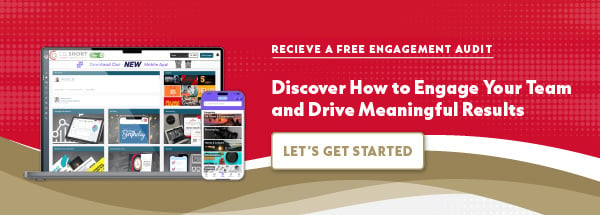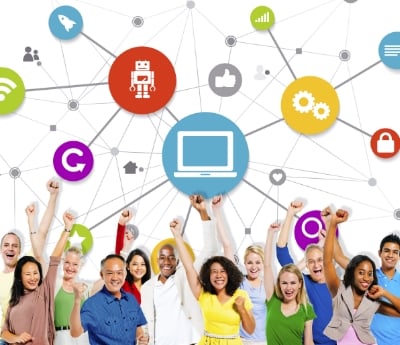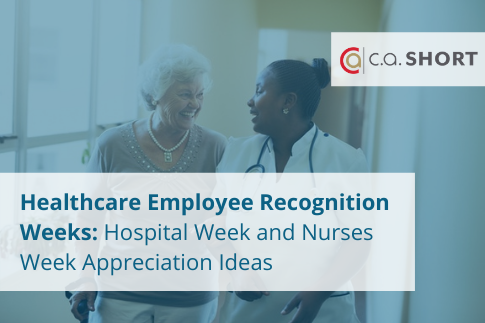-png.png)
Employers that want to boost employee engagement are increasingly taking notice of the power of peer relationships in the workplace. The water cooler phenomenon isn't about gossip as much as it builds connections with co-workers on lighthearted topics like family, sports, and entertainment. Therefore, there is a deep well beneath the water cooler top tap to improve engagement since close work relationships and peer respect boost employee satisfaction by 50%, making it seven times more likely to engage fully in their work.
Peer-to-peer relationships and peer-to-peer recognition are becoming powerful tools in increasing employee recognition that promote employee engagement.
What is Peer-to-Peer Recognition?
Peer-to-peer recognition, or P2P recognition, is feedback coming from each employees' peers instead of, or in addition to supervisors. It offers everyone a chance to give and receive input from fellow employees on their same levels. According to HR Daily Advisor, it has become a useful and well-regarded way to give employees more feedback and recognition, offering special meaning because it comes from people who count on them daily.
In specialized peer recognition programs, businesses ask employees to offer constructive, meaningful and encouraging feedback to help their fellow employees know it is coming from a place of caring and appreciation. Forbes noted one employee's discussion on how peer recognition encouraged teamwork: "Peer recognition has brought everybody closer together. Everybody seems to have a better attitude, and we are starting to trust each other more.”
Peer-to-Peer Recognition Examples
Putting an official peer-to-peer recognition program in place lets your employees know you are serious about hearing from them. It is also essential to define your program's goals, such as whether you want to boost sales, improve attendance, or develop leadership skills. The more information you offer and the more sincere you are in your program's delivery, making everyone feel like an important part of the process, the more earnestly employees will participate, providing vital feedback and enhancing engagement.
Once you have your plan in place, you might wonder what types of P2P recognition will work for your employees. Here are some examples.
eCards That Recognize Peers for Goals, Achievements, and Significant Dates
You can design eCards that are fully unique to your business's brand and goals. These cards can help drive values-led behavior to give employees a chance to receive recognition for actions directly related to their work and your business's overarching goals, mission, and values. eCards also offer everyone a simple way to remember the everyday and little things that help build relationships, such as employee birthdays, anniversaries, and other significant dates.
Wall of Fame
Whether your wall of fame includes digital bulletin boards around your office, a central wall in a main area of the building, or a post on your company intranet, you can boost employees' spirits by recognizing them publicly. Ask your employees to recommend an employee for various categories in your organization each month, then select the employee who has received the most votes or recognition feedback.
Our People Are Everything™ platform utilizes a company "rec room" feature, making it easy for employees to recognize each other.
Offer Team Awards
You don't always need to give one person center stage. Many times, employees might prefer the joy of celebrating success with valued team members. Ask your team to come up with recognition for everyone in the group, writing notes to each other in thanks for pitching in and going above and beyond. Provide them with special gifts and materials to show their appreciation for each other and all the hard work everyone does. It is an easy way to foster camaraderie and boost the spirit of engagement.
Make a Team Video
Let a team member's peers make a celebratory video, congratulating or thanking them for some achievement or special task they have done.
Why Peer Recognition Matters for Employee Engagement?
Peer recognition breaks down the hierarchical structure to allow employees to assess and recognize each other to achieve common goals. While managers are still and will always remain a crucial component to success, giving employees some freedom to work together and acknowledge each other's strengths adds new interactive dimensions to their relationship with others and their own work.
There are several other reasons why peer recognition matters to employee engagement:
- Establishes a more inclusive, collaborative, and empathetic work environment. Peer acknowledgment can help an employee feel more confident, which further helps them shine in management's eyes. People gain a stronger sense of belonging, which leads to increased engagement.
- Includes everyone on the team, such as receptionists and others who might otherwise feel out of the loop. Make sure to find ways to make sure everyone is involved.
- Improves team morale by giving them a communication framework outside of the basics of asking someone for a report or document. It embeds a positive team dynamic to encourage each other daily.
- Enhances performance and motivation.
- Boosts employee satisfaction when they know that they have helped their co-workers in meaningful ways.
- Increases profits and ROIs, according to Gallup research, which shows that a recognized and engaged workforce enjoys a 21% increase in profits.
- Decreases employee turnover because today's employees want more and more frequent feedback to help them better navigate their work. By creating a peer program, your employees can help provide that essential conversation at the ground level. Since there is only one manager or supervisor and multiple team members, peer recognition makes it easier to help everyone feel recognized.
Get Started With Peer-to-Peer Recognition
If you are ready to get started with your peer-to-peer recognition program, the C.A. Short Company is here to help. We are your partner in helping you increase employee engagement to improve performance outcomes to grow your bottom line. To request a Complimentary Consultation, please click here.









SHARE